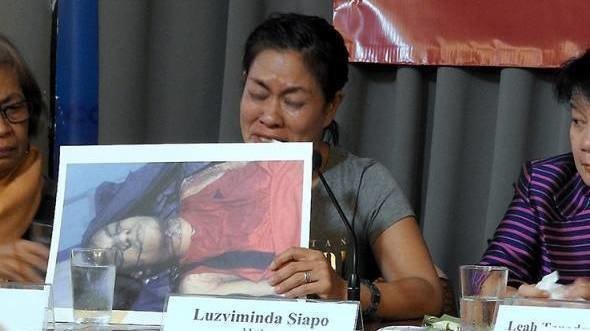By PABLO A. TARIMAN
 LIKE acclaimed French actress Isabelle Huppert, multi-awarded director Brillante Mendoza is not afraid to confront the dark side of life.
LIKE acclaimed French actress Isabelle Huppert, multi-awarded director Brillante Mendoza is not afraid to confront the dark side of life.
Mendoza’s films, like “Masahista,” “Serbis,” and “Kinatay,” show the other side of a predominantly Catholic country. “Kinatay” won for him the best director award at the 2009 Cannes Film Festival. Huppert, on the other hand, won the 2001 Cannes Best Actress award for the role of the cold and unemotional piano teacher.
“Truth and reality has no color or boundary,” Mendoza said. “My films depict real stories against the backdrop of what we call the dark side of our country. But they are real. If we deny these realities, then we also deny the truth.”
His masterful depiction of social realities continues to gain awards. Last Friday, Mendoza’s film “Lola” won best picture in a film festival in Tehran, Iran.
The movie about two grandmothers, played by Anita Linda and Rustica Carpio whose lives got intertwined with the involvement of their grandsons in a crime, had won several other awards including Best Film at the Dubai International Filmfest, Grand Knight Award at the Miami International Filmfest and Best Film at the Rome Asian Filmfest.
Another Mendoza film being awaited is “Prey,” inspired by the kidnapping by the Abu Sayyaf bandits of a group of tourists including American missionary Gracia Burnham and her husband. With Huppert playing the role of Burnham, it is easily the film coup of the year.
Mendoza and Huppert brought their profound understanding of humanity in “Prey.”
The Filipino director found the French actress provocative and magnetic. “She can draw her audience into her acting like a magnet,” he noted. “Her face is so unassuming but as her character begins to unfold in the film, it’s like seeing a chameleon in action.”
Huppert returned the compliment, describing the Filipino filmmaker as “very special and an extraordinary director.”
She said she had “an extraordinary experience” shooting the film. “Maybe, one of the most outstanding in my life as an actress,” she enthused.
Mendoza confessed he has been an admirer of Huppert the instant he saw her in 2009 when she chaired the Cannes filmfest jury. “When Ms. Huppert entered the Cinema hall during the Festival, I was awed by her stunning presence. She is not tall but her aura is captivating and powerful,” he recalled.
After their meeting in France, they met again in Sao Paulo, Brazil in another film festival. As the acquaintance grew into familiarity, the filmmaker knew he was being sized up for a possible partnership.
He said: “She tries to study the person she is dealing with. Then as she warms up, she becomes engaging. She is very smart and candid.”
Mendoza admitted Cannes was a big milestone in his career as filmmaker for the simple reason that it drew the attention of the world not only to him but to all the Filipino filmmakers.
He said: “The victory is not mine alone but the country’s. My career as a filmmaker should not end in Cannes. After the fuss and curiosity over my triumph at Cannes, my life as a filmmaker must go on. I should continue doing films. It has become a calling and a mission.”
Even as his films picked up awards one after another in foreign film festivals, most Filipinos do not seem to appreciate them.
“Maybe some audiences are not ready for the kind of films that are ‘serious’,” he lamented. “There are some moviegoers who are responsive to films that are thought -provoking and are willing to be ‘disturbed’ by such films.”
But Mendoza is undaunted, saying, “It’s just a matter of developing further this kind of audience and finding a regular venue where they could see these films.”
He continued: “Unfortunately, most of the movie-going public is used to the ‘formula’ films that merely give them entertainment. And, we cannot blame them because they need a break from their economic and social problems.”
Mendoza said Filipino filmmakers should take as a challenge Filipino audience’s preference for mainstream films and soap operas (teleserye) rather than interesting indie films.
“It is the responsibility of the filmmakers to be catalysts of change,” he said. “They should continue doing films that mirror social realities. If they ceased to do this, then they failed to contribute to social change.”


